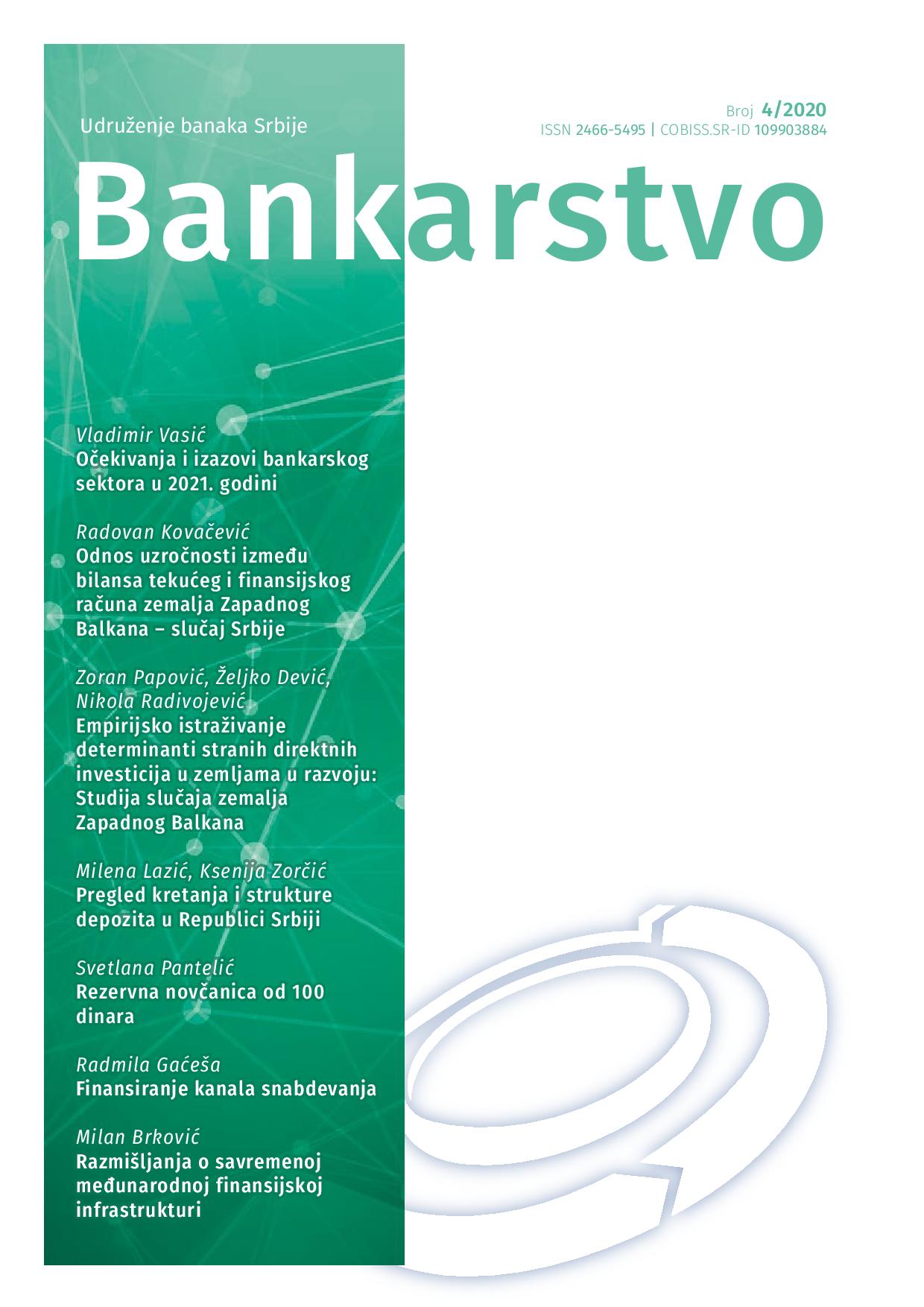Odnos uzročnosti između bilansa tekućeg i finansijskog računa zemalja Zapadnog Balkana – slučaj Srbije
The Causal Relationship Between Current Account and Financial Account Balance in Western Balkan Countries – the Case of Serbia
Author(s): Radovan KovačevićSubject(s): Economy, Accounting - Business Administration
Published by: Udruženje banaka Srbije p.u.
Keywords: current account; financial account; cointegration; Granger causality; VAR model; VEC model; Western Balkan;Serbia;
Summary/Abstract: The Western Balkans (WB) countries registered an increase in the current account (CA) deficit and net capital inflow in the period before the outbreak of the global financial crisis of 2008. The external debt of these countries has increased. The aim of this paper is to examine the causality relationship between the CA and financial accounts (FA) balance of Serbia. A framework for the empirical analysis is the vector autoregression (VAR) model and the vector error correction (VEC) model. Using the Johansen cointegration test, we find the existence of a long-run causality relationship between these two variables. The estimated long-run coefficient on the FA variable as an independent variable shows that an increase of Serbia’s FA balance by 1% leads to an increase in the CA deficit of Serbia by 0.58%. Applying the Granger causality test, it was found that causality runs from FA to the CA, which implies recommendations for economic policymakers. The finding indicates the need to continuously check the sustainability of the CA deficit of Serbia, as well as to monitor the level of presence of foreign capital in the Serbian economy.
Journal: Bankarstvo
- Issue Year: 49/2020
- Issue No: 4
- Page Range: 9-41
- Page Count: 33
- Language: English, Serbian

